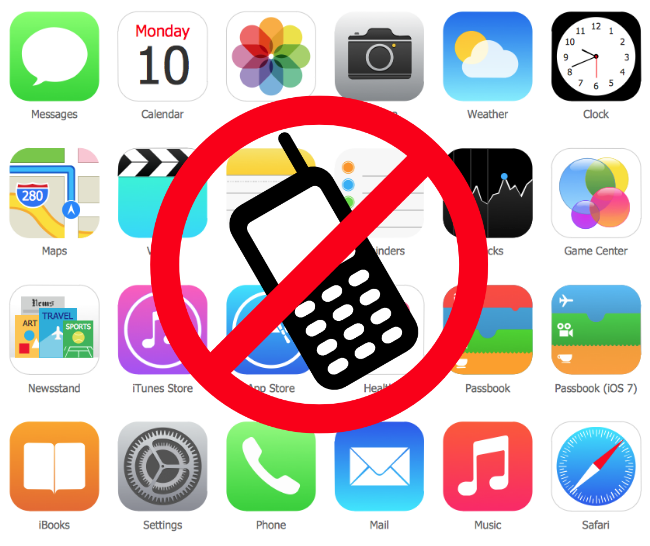The Simon Personal Communicator made its debut as the first “smartphone” in 1992. Apple released the first generation of iPhones 15 years later, dominating the mobile phone industry as the ultimate “game-changer.”
As of this year, 77% of Americans own a smartphone, which comes as no surprise, because who could possibly resist the captivating appeal of smartphones?
As an adolescent, I am well aware of the popularity of smartphones in my generation, given that we are the first to grow up in an entirely technological era. In fact, adolescents spend an average of nine hours a day on their phones.
My challenge, as noted by the title of this article, is to go an entire day without my phone. I know, you’re probably thinking, “wow, how addicted to her phone is this girl?” I am pretty attached to my phone, and I’m not ashamed to admit that.
I have experienced the absence of my phone from my days of being grounded here and there. That being said, it is a different experience having your phone taken from you rather than simply choosing not to use it. It is a test of willpower to see how different our lives would be without the constant use of technology. That was my challenge: self control.
As a disclaimer, my phone will still be on me at all available times, but only for the sake of emergencies. Other than that, I did not access my phone at any other time, essentially going off the grid.
The day had arrived, and I already almost slipped up. My routine when I wake up in the morning starts off with me pulling myself out of my warm, comfy bed and doing a social media check. But not this time.
The second I touched my phone, I remembered and threw it back under my pillow. I couldn’t even do my classic “good morning” text to my boyfriend, which felt extra weird considering I had done that almost every day for the past year.
I arrived at school and, upon approaching the building, I felt for my phone in my side pocket, like I always do and almost had a heart attack. I then remembered I shoved it deep into my backpack so I wouldn’t be tempted. This was going to be a difficult day.
As the day progressed, it became much easier to just forget about my phone altogether. I was very busy in general and found myself completing my work much faster than normal.
But, as the school day drew to a close, I found myself starting to miss my phone the most. After school I go to the gym to work out and not having my phone made me realize how amazing it is to have music when you work out, which was where I was most frustrated.
Research has shown that listening to music when exercising decreases an athlete’s “bodily awareness.” In other words, I became increasingly aware of my fatigue way earlier in my workout than I normally would with music. The harsh sound of my shortened breath was not exactly a motivator.
Not having music was the most difficult part of not having access to my phone. Other than that, I didn’t mind being away from my phone at all.
Later that evening, I was reading a book for my English class, when it hit me how great I felt that day. I knew I felt so great because I didn’t have access to one specific aspect of my phone that is possibly the most addictive: social media.
Yes, I know, the concept of social media rotting our brains is breathing down our necks constantly. I hate to say this, but it’s true.
Social media brings us many positives: social connections, political awareness, promotion of businesses and more. But it is impossible to ignore the disturbing number of negatives.
Earlier that day, a friend of mine remarked how she could never part with her phone because she would feel so disconnected. It troubled me to know that people feel totally isolated without their phones.
This phone dependency brings us to one of the most negative effects of social media: the creation of a false sense of connection.
Our false sense of connection comes from the difficulty of distinguishing meaningful relationships in the real world versus the casual relationships created through social media. This is not to say some internet friendships are without meaning, but we tend to overlook our real-world relationships when surrounded by the media haze.
I should not feel anxious with out my phone, or knowing my peers believe that absence of social media leads to an automatic disconnect from the world itself. It is downright unhealthy that these objects control our lives.
I’m not saying to quit your phone cold-turkey, but I highly recommend a break from it at least once a week. You’d be amazed how even the slightest shift away from your phone can bring such positive effects–or at least it did in my experience.
And to my phone: thank you for all you offer. You give me infinite information at the touch of a search bar, music to help me hate exercising less, the ability to talk to my friends when I miss them and you allow me to have weird filters shown off everywhere. But, we need a break.












